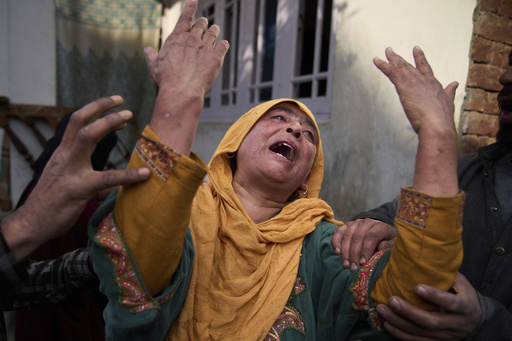In the continuing saga of strained relations between India and Pakistan, hostilities have escalated over the disputed region of Kashmir. Over the weekend, Indian military sources reported that Pakistani soldiers initiated gunfire along the Line of Control (LoC) for the second consecutive night. This follows a devastating attack last week in which gunmen killed 26 individuals, predominantly Indian tourists. India has termed this incident a “terror attack” and laid the blame at Pakistan’s feet, a claim vehemently denied by Pakistan.
The chaos stems from an attack in the Indian-controlled Kashmir area, near the well-known resort town of Pahalgam. It was claimed by an unknown militant faction dubbing itself the Kashmir Resistance. This attack marks one of the deadliest assaults on civilians in the volatile region in years. The territories of Kashmir have been a flashpoint, with both countries claiming complete ownership over it, having already fought several wars over its control.
As stated by the Indian army, multiple Pakistani military posts engaged in firing at Indian forces across various sections of the LoC in Kashmir. The Indian side responded in kind with small arms, and fortunately, there were no reported casualties. Meanwhile, markets in the region under Pakistan’s administration saw normal activity as no evacuation orders were issued for residents near the border.
The recent attack on tourists has triggered a series of retaliatory actions between the two countries. India has taken steps such as halting a vital water-sharing agreement, closing a key border, and revoking visas for Pakistanis. Pakistan responded by annulling Indian visas, closing its airspace to Indian flights, and suspending trade agreements. Reports have surfaced of citizens from both nations returning home through the Wagah border as a result of these heightened tensions.
In response to India’s actions, Pakistani Prime Minister Shehbaz Sharif declared the government’s determination to respond robustly to any attempts by India affecting water flow. He also expressed readiness for a neutral investigation into the recent attack on the tourists.
A Pakistani official from the disaster management division accused India of unleashing a substantial water flow into the Jhelum River, sparking flood concerns in areas controlled by Pakistan. Consequently, locals residing along the riverbanks were advised to evacuate. There was no immediate comment from the Indian authorities on this situation.
International engagement in the India-Pakistan dispute has also been noted, with Iran offering to mediate. Iran’s Foreign Minister stated that the country is prepared to facilitate discussions between the two nations to enhance understanding during this challenging period. On the other hand, U.S. President Donald Trump, while acknowledging the tensions, refrained from commenting on any direct involvement from the U.S. in mediating the conflict. However, historical precedents exist where the U.S. has urged for restraint in such situations.
Following the violent attack, Indian forces launched an intensive crackdown in the Kashmir Valley, targeting those suspected of fomenting dissent against Indian rule. At least 1,500 individuals were interrogated, some of whom were arrested, according to police sources. In a further demonstration of their clampdown, Indian troops detonated explosives in the residences of suspected militants, causing widespread structural damage in surrounding areas.
This volatile situation represents yet another phase in the long-standing discord between India and Pakistan over Kashmir. Both sides continue to blame one another for aggravating the conflict, as they each search for a resolution while grappling with the severe implications of these border skirmishes.



